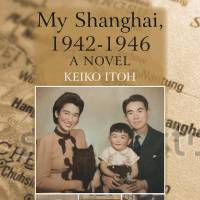Partly inspired by the wartime experiences of author Keiko Itoh's mother, "My Shanghai, 1942-1946" is a comfortably old-fashioned epistolary novel told entirely through diary entries. The story begins in January 1942 as London-educated protagonist Eiko Kishimoto arrives in the Shanghai International Settlement with her businessman husband, and follows them through to their postwar repatriation to Japan.
My Shanghai, 1942-1946: A Novel, by Keiko Itoh
360 pages
University of Hawaii Press, Nonfiction.
Itoh uses her training as a historian to recreate occupied Shanghai in vivid detail, from the Morinaga Confectionery in Little Tokyo to the specific ships in the harbor preparing for exchange repatriation. The sense of place is palpable, and the changes in the city's mood — first gradual, then abrupt — are handled with subtlety and deftness as well.
Unfortunately, its inhabitants are not as well developed. They occasionally lapse into stiff exposition ("As you know, the han-jian collaborator trials have started") and often feel like types rather than individuals, defined not least by quirks of speech ("Das is good news").
There is also a shortage of plot. Eiko just stoically endures the worsening situation. It doesn't help that her status and wealth insulate her from any real danger, or even any real understanding of how horrific the war could be for those lacking such protection. It's a perspective that isn't often seen in English, but a necessarily limited one. Still, within these limits the book is a convincing evocation of a now-lost past.


















With your current subscription plan you can comment on stories. However, before writing your first comment, please create a display name in the Profile section of your subscriber account page.